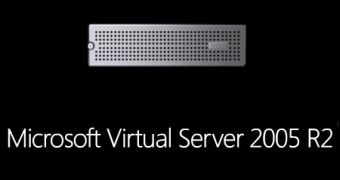Towards the beginning of June, Microsoft made available for download the first service pack for Virtual Server 2005 R2. In addition to delivering a collection with the latest software updates for Virtual Server 2005 Rs, the service pack also brought to the table support for additional host and guest operating systems. Microsoft's virtualization technology, designed with the Windows Server platform in mind, introduces a range of new features, enhanced capabilities, and performance improvements; but as far as extending functionality goes, a plethora of both guest and host operating systems are now supported.
When it comes down to the new host operating systems that will integrate seamlessly with Virtual Server 2005 R2 SP1, then Windows Server 2003 both 32-bit and 64-bit captured Microsoft's focus with the Standard, Enterprise and Datacenter editions. Of course that Virtual Server 2005 R2 SP1 merely extends the support for host operating systems already in place with R2. The list containing all the new platforms supported as guests with the server virtualization technology is a tad longer.
Windows Vista Ultimate (non-production use only); Windows Vista Business (non-production use only); Windows Vista Enterprise (non-production use only); Windows Server 2008 Beta 3 (non-production use only); Windows Server 2003, Standard Edition with SP 2; Windows Server 2003, Enterprise Edition with SP2; Windows Server 2003, Web Edition with SP2; OS/2 4.5; Red Hat Enterprise Linux 2.1 (update 7); Red Hat Enterprise Linux 3.0 (update 8); Red Hat Enterprise Linux 4.0 (update 4); SuSE Linux Enterprise Server 9.0; SuSE Linux Enterprise Server 10.0; Solaris 10; Red Hat Linux 9.0; SuSE Linux 9.3; SuSE Linux 10.0; SuSE Linux 10.1 and SuSE Linux 10.2 are all the new operating systems supported as guests in Virtual Server 2005 R2 SP1.
"Now most of these are unsurprising. Yes - we have added support for Vista and Beta 3 of Longhorn Server. We have also added support for the latest versions of Windows Server 2003 and of our supported Linux distributions. One thing that you might have missed though is the addition of support for OS/2 4.5 and Solaris 10. Neither of these operating systems have been officially supported under Virtual Server before - so here you go (please note - no Virtual Machine Additions are available for Solaris 10)," explained Ben Armstrong, Program manager on the core virtualization team at Microsoft.

 14 DAY TRIAL //
14 DAY TRIAL //